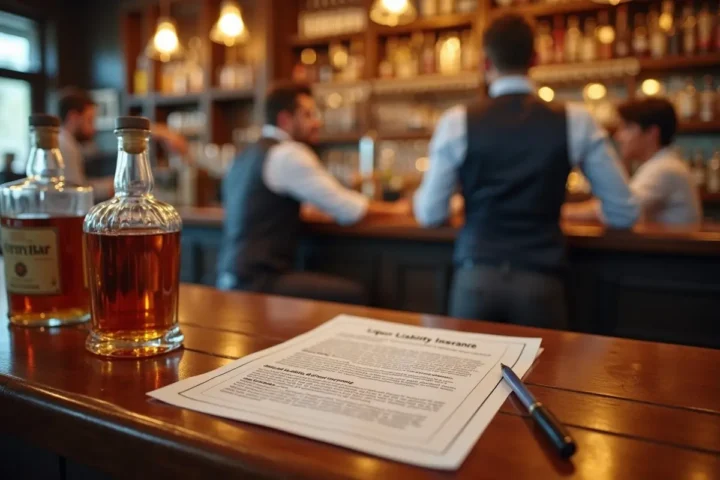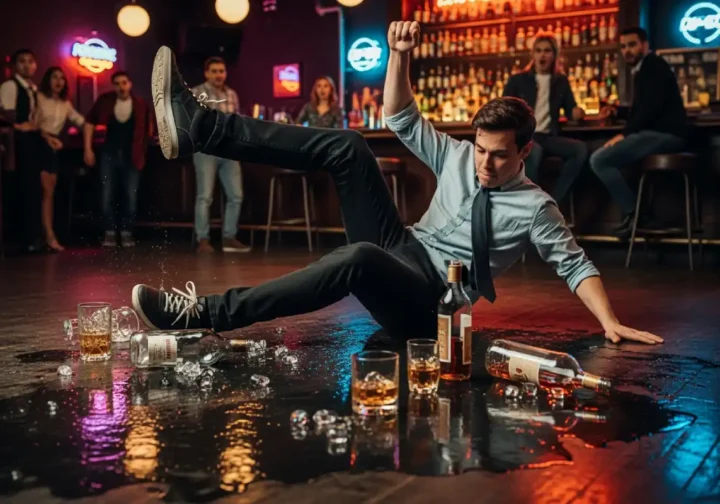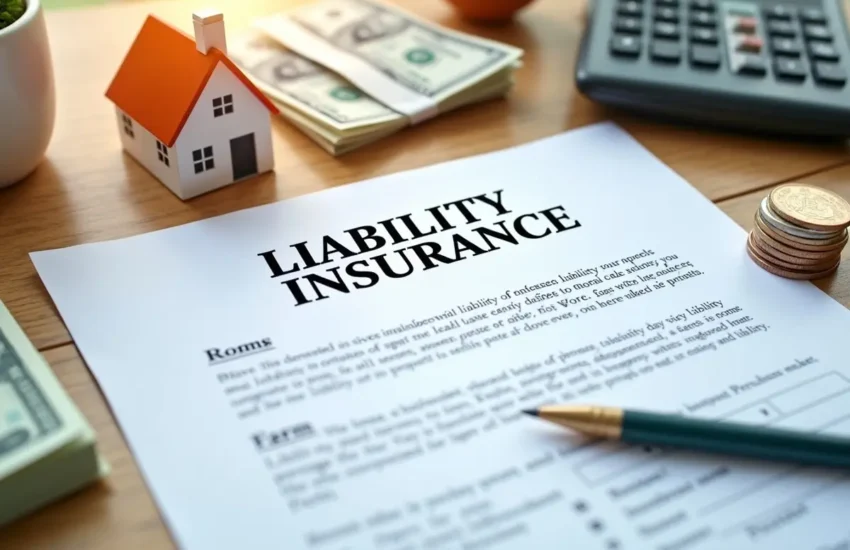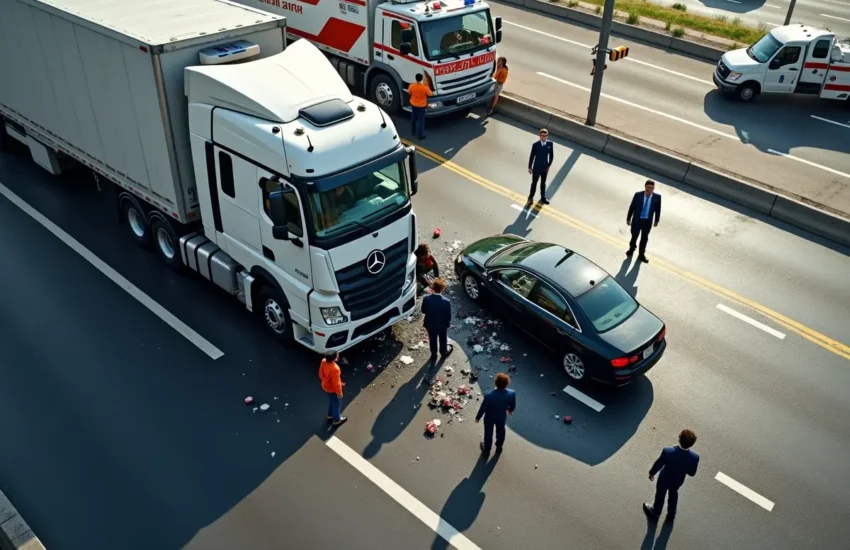All About Liquor Liability Coverage Needs
When we discuss liquor liability insurance, understand the legal landscape that necessitates this coverage. At the heart of it are “dram shop laws,” which exist in forty-three states across the U.S. These laws hold businesses accountable for the actions of intoxicated patrons they have served, creating a pathway for third-party liability claims.
This means if an overserved customer causes injury or damage after leaving your establishment, your business could be held responsible. For a comprehensive overview of these critical state-specific regulations, we often refer businesses to resources like FindLaw’s guide on dram shop laws.
It’s also crucial to distinguish between full liquor liability and host liquor liability, as well as how general liability policies typically exclude alcohol-related incidents for businesses profiting from alcohol sales.
Here’s a list of businesses that are most likely to need robust liquor liability insurance:
- Bars, Pubs, and Taverns: Their primary business revolves around serving alcohol.
- Restaurants: Especially those where alcohol sales contribute significantly to revenue.
- Caterers: Who serve alcohol at various events, both on and off-premises.
- Liquor Stores: Selling alcohol for off-premise consumption.
- Breweries, Wineries, and Distilleries: Manufacturing and often serving their own alcoholic products.
- Nightclubs and Entertainment Venues: High-volume alcohol service environments.
- Hotels and Resorts: Operating bars, restaurants, and hosting events where alcohol is served.
- Grocery Stores and Convenience Stores: Selling packaged alcohol.
- Special Event Organizers: When alcohol is a key component of the event.

What Are Dram Shop Laws?
Dram shop laws are state statutes that impose legal accountability on establishments that sell or serve alcoholic beverages. The “dram shop” term originates from the 18th-century practice of selling gin by the spoonful, or “dram.” Today, these laws are designed to protect the public by holding alcohol vendors responsible when they serve alcohol to:
- Minors: Individuals below the legal drinking age.
- Visibly Intoxicated Persons: Customers who are clearly impaired.
If an establishment serves alcohol to someone in either of these categories, and that person subsequently causes harm or damage to themselves or a third party, the establishment can be sued. The specific nuances and severity of these laws vary significantly from state to state, making it vital for business owners to understand the regulations in their operating area.
For a deeper dive into how these laws apply across different states, including social host liability, Nolo provides an excellent resource on state dram shop laws and social host liability. A single lawsuit stemming from a dram shop violation can lead to devastating financial consequences, including substantial legal fees, settlements, and damage awards.
Differentiating Liquor Liability from Host Liquor Liability
Understanding the distinction between liquor liability and host liquor liability is critical for any business that encounters alcohol.
Liquor Liability Coverage is specifically designed for businesses whose primary function involves the sale, service, or distribution of alcohol for profit. This includes the bars, restaurants, and liquor stores we’ve already mentioned. For these businesses, a standard commercial general liability policy almost always contains an exclusion for alcohol-related incidents because serving alcohol for profit is considered a high-risk activity.
Therefore, a separate liquor liability policy or an endorsement to their general liability policy is essential. This coverage protects against claims arising from incidents where an intoxicated patron, served by the business, causes bodily injury or property damage.
Host Liquor Liability Coverage, on the other hand, is typically included within a standard commercial general liability policy. It’s intended for businesses that do not sell or serve alcohol for profit but allow its consumption on their premises or at events they host.
Think of a financial firm holding an annual company party with an open bar, or a business hosting a holiday gathering where alcohol is provided to guests without charge. In these scenarios, the business is acting as a “host” rather than a “seller.” Host liquor liability covers the incidental exposure to alcohol-related risks.
However, it’s important to note that if a business charges for alcohol or requires a liquor license, host liquor liability coverage is insufficient. For such scenarios, or for specific events where alcohol is served, dedicated event insurance including host liquor liability might be needed, as detailed by resources like Private Event Insurance’s offerings for insurance for other events. This distinction is a common point of confusion, and understanding your exposure is the first step to adequate protection.
Understanding Your Policy: What’s Actually Covered?
A robust liquor liability insurance policy is designed to cover a range of incidents that can arise when serving alcohol. Its primary purpose is to protect your business from the significant financial burden of lawsuits. Typically, a policy will cover:
- Bodily Injury: This is perhaps the most common type of claim. If an intoxicated patron causes physical harm to another person (e.g., in a fight, an accident, or an assault) or to themselves (e.g., a slip-and-fall), the policy can cover medical expenses, rehabilitation costs, and pain and suffering.
- Property Damage: Should an intoxicated individual damage another person’s property—whether it’s breaking a window, vandalizing a vehicle, or ruining personal belongings—your policy can help cover the repair or replacement costs.
- Legal Defense Costs: Even if your business is ultimately found not liable, defending against a lawsuit can be incredibly expensive. Liquor liability insurance typically covers attorney fees, court costs, and other litigation expenses, regardless of the outcome.
- Settlements and Judgments: If a claim leads to a settlement out of court or a judgment against your business, the policy will pay these amounts up to your coverage limits.
- Assault and Battery Claims: Many liquor liability policies offer coverage for claims arising from assault and battery incidents involving intoxicated patrons, which is a critical protection given the nature of environments where alcohol is served.
- Drunk Driving Accidents: This is a major concern under dram shop laws. If an intoxicated customer leaves your establishment and subsequently causes a car accident resulting in injury or death, your business could be held liable. The policy would respond to claims related to these tragic incidents.

Common Incidents and Claims
The scenarios that lead to liquor liability claims are diverse and often unpredictable. We frequently see claims arising from:
- Intoxicated Patrons: Customers who, due to impaired judgment, injure themselves or others on your premises. This could range from a simple fall to more severe altercations.
- Fights and Altercations: Alcohol can lower inhibitions, leading to disputes escalating into physical confrontations. If an overserved patron gets into a fight and injures someone, your business could be implicated.
- Accidents Post-Service: The most severe claims often occur after a patron has left your establishment. This includes drunk driving accidents, which can result in catastrophic injuries or fatalities, leading to multi-million dollar lawsuits against your business.
- Vandalism: Property damage caused by an intoxicated individual, either on your premises or elsewhere, can also fall under the purview of liquor liability.
- Medical Expenses: Beyond immediate injuries, long-term medical care, lost wages, and emotional distress can all contribute to the significant costs covered by these policies.
Typical Policy Exclusions
While liquor liability insurance offers vital protection, it’s important to be aware of what it typically does not cover. Understanding these exclusions helps you identify potential gaps and consider additional policies. Common exclusions include:
- Underage Service Claims: Many policies may exclude coverage if alcohol was knowingly or negligently served to minors, especially if proper ID checking procedures were not followed. This reinforces the importance of strict adherence to age verification laws.
- Employee Injuries: Injuries sustained by your employees while on the job are generally covered by Workers’ Compensation insurance, not liquor liability. For details on this, you might consult resources like Nationwide’s information on General Liability Insurance.
- Damage to Your Own Property: Liquor liability focuses on third-party claims. Damage to your own business property, such as spills, broken fixtures, or vandalism by patrons, would typically fall under your commercial property insurance.
- Intentional Acts: While some policies may offer limited coverage for assault and battery claims against your business, intentional criminal acts committed by an intoxicated patron are often excluded.
- Punitive Damages: Some policies may exclude punitive damages, which are awarded to punish egregious behavior rather than to compensate for actual losses.
- Violations of Law: Claims arising from violations of liquor laws (e.g., serving after hours, serving without a license) may also be excluded.
It’s crucial to review your specific policy carefully and discuss any concerns with your insurance provider to ensure you have a clear understanding of your coverage and any limitations.
The Role of Duncan’s Expert Liquor Liability in Protecting Your Business
Navigating the complexities of liquor liability insurance can be challenging. That’s where Duncan’s expert liquor liability solutions become invaluable. At Duncan & Associates, we focus on understanding the unique risks your business faces to tailor a liquor liability policy that provides comprehensive protection.
Our process involves a thorough evaluation of your operations, ensuring that your coverage aligns with your specific needs and state regulations. We believe that proper coverage is not just about meeting legal requirements, but about securing your business’s future and giving you peace of mind.
Key Components of an Expert Liquor Liability Assessment
To provide you with the most accurate and effective liquor liability coverage, we conduct a detailed assessment that considers several key factors:
- Business Information: This includes the type of establishment (e.g., bar, restaurant, caterer, liquor store), its legal structure, and years in business.
- Gross Annual Sales: Your total revenue provides an indication of your business’s scale and potential exposure.
- Percentage of Alcohol Sales: The proportion of your total sales derived from alcohol is a significant factor. Businesses with a higher percentage of alcohol sales generally face greater liability risks and thus higher premiums.
- Claims History: Your past record of liquor-related claims or incidents will heavily influence your rates. A clean claims history can lead to more favorable premiums.
- Employee Training Programs: Evidence of responsible alcohol service training (like TIPS or ServSafe certification) for your staff demonstrates a commitment to risk management and can positively impact your insurance rates.
- Location and State Laws: As discussed, dram shop laws vary by state. Your geographic location dictates the specific legal environment and minimum coverage requirements you must meet. For instance, businesses in Texas that distribute liquor have unique liability considerations, as highlighted by Quote Texas Insurance’s focus on liquor liability for distributors in Texas.
This comprehensive assessment allows us to craft a policy that truly protects your business from potential liabilities.
How to Manage and Reduce Your Premiums
While liquor liability insurance is a necessary expense, there are several strategies we can explore to help you manage and potentially reduce your premiums without compromising essential coverage.
- Bundle Your Insurance Policies: Often, insurance providers offer discounts when you purchase multiple policies from them. Combining your liquor liability with general liability, commercial property, or workers’ compensation can lead to significant savings. Many insurers, like The Hartford, encourage bundling to simplify your coverage and potentially lower costs, as they suggest on their page for getting a business insurance quote.
- Pay Your Entire Premium Upfront: If feasible, paying your annual premium in one lump sum rather than monthly installments can often result in a discount from your insurer.
- Implement Robust Risk Management Strategies: Proactive measures to prevent incidents are highly valued by insurers. This includes:
- Staff Training: Ensure all employees involved in serving alcohol are certified in responsible alcohol service programs (e.g., TIPS, ServSafe). This demonstrates a commitment to safety and can lead to lower premiums.
- Strict ID Policies: Consistently checking IDs to prevent underage drinking is paramount.
- Monitoring Patrons: Training staff to identify and responsibly manage visibly intoxicated individuals, including cutting off service and arranging safe transportation.
- Serving Food and Water: Encouraging patrons to eat and stay hydrated can help slow alcohol absorption.
- Security Measures: Adequate lighting, security personnel, and surveillance can deter altercations and property damage.
- Adjust Your Coverage Limits and Deductibles: While it’s crucial to have adequate coverage, you can review your policy limits. Higher deductibles (the amount you pay out-of-pocket before insurance kicks in) typically result in lower premiums. However, ensure your deductible is an amount you can comfortably afford in the event of a claim. Insureon’s detailed analysis of liquor liability insurance costs provides insights into how these factors impact your premiums.
- Maintain a Clean Claims History: This is perhaps the most impactful long-term strategy. Businesses with fewer past claims are seen as lower risk and generally qualify for better rates.
By actively engaging in these practices, you not only create a safer environment for your patrons and staff but also build a strong case for more affordable insurance rates.
The High Stakes: Consequences of Inadequate Coverage
The decision to forgo or underinsure your business with liquor liability coverage is a gamble with potentially catastrophic consequences. Without adequate protection, a single alcohol-related incident can lead to:
- Financial Ruin: Lawsuits stemming from bodily injury or property damage caused by an intoxicated patron can result in multi-million dollar judgments. Without insurance, your business assets, and potentially your personal assets, could be seized to cover these costs.
- Exorbitant Lawsuit Costs: Even if you win a lawsuit, the legal fees, court costs, and expert witness fees can be staggering. Liquor liability insurance covers these defense costs, which can quickly deplete a business’s operating capital.
- Business Closure: Many small businesses simply cannot withstand the financial shock of a major lawsuit or settlement. Inadequate coverage often leads to bankruptcy and permanent closure.
- Loss of Liquor License: State liquor control boards take dram shop violations very seriously. A significant incident or repeated violations can lead to the suspension or permanent revocation of your liquor license, effectively ending your ability to operate.
- Reputational Damage: Beyond the financial and legal repercussions, a highly publicized incident involving an overserved patron can severely damage your business’s reputation. This can lead to a loss of customers, negative publicity, and a long-term struggle to rebuild trust within the community.
Consider the stark contrast between a typical premium and the potential cost of a single, severe incident:
Liquor Liability Insurance
- Average monthly premium (small business): $45 – $100
- Potential cost of a single lawsuit (severe injury/death): Up to several million dollars
Legal Defense Costs (without coverage)
- Monthly premium: $0
- Potential cost: Tens to hundreds of thousands of dollars
Total Exposure
- Annual premium: $540 – $1200
- Potential risk: Business-ending
This highlights that the relatively modest investment in liquor liability insurance is a critical safeguard against potentially devastating financial liabilities. The peace of mind it provides is invaluable.
Frequently Asked Questions about Liquor Liability Insurance
We often encounter common questions from business owners seeking to understand liquor liability insurance better. Here, we address some of the most frequent inquiries.
How much does liquor liability insurance cost?
The cost of liquor liability insurance is highly variable, influenced by several factors unique to your business. However, we can provide some general insights based on industry data.
- Average Premiums: Small businesses typically pay an average premium of $45 per month, or about $542 annually, for liquor liability insurance. Many businesses (52%) pay less than $50 per month, while 20% pay between $50 and $100 per month.
- Cost Factors: Key factors influencing your premium include:
- Type of Business: Bars and nightclubs generally pay more due to higher volume and risk compared to a restaurant where alcohol sales are a smaller percentage. For example, bars often have an average liquor liability limit of $2 million, while restaurants might average $1 million.
- Annual Liquor Sales: The higher your revenue from alcohol, the higher your premium.
- Location: State-specific dram shop laws and local regulations play a significant role. For instance, liquor liability insurance can cost as low as $61 per month, but this can fluctuate greatly by state and business type.
- Claims History: A history of previous claims will increase your rates.
- Coverage Limits and Deductibles: Higher coverage limits mean higher premiums, but also greater protection. Higher deductibles can lower premiums.
- Risk Management Practices: Businesses with robust training programs and strict serving policies may qualify for discounts.
- Event Policies vs. Annual Policies: For businesses that only serve alcohol occasionally (e.g., caterers for specific events), event-based policies are available. For instance, a Bronze liquor liability event policy might start at $105/Event, while a Silver plan could be $134/Event. Annual policies, such as FLIP’s Gold plan starting at $200/Year or Platinum at $429/Year, are designed for ongoing operations, as detailed on their Dram Shop Insurance page.
To get an accurate estimate, it’s always best to obtain a personalized quote.
How long does it typically take to get liquor liability insurance coverage?
The process of obtaining liquor liability insurance has become significantly streamlined, especially with the advent of online platforms.
- Online Applications: Many providers, like Next Insurance, boast that you can get an instant quote and coverage in minutes. You answer a few questions about your business, and a quote is generated almost immediately.
- Quote Process: For more complex businesses or specific needs, the quote process might involve a brief conversation with an agent, but it’s still generally quick.
- Information Needed: To speed up the process, have your business name, owner contact information, address, a clear description of your business activities, gross annual sales (especially alcohol sales), and your desired coverage limits readily available.
- Typical Timeline: For eligible businesses, it can take as little as 10-20 minutes to complete an online application and finalize a policy. Many platforms offer instant proof of insurance (certificate of insurance) once your first payment is made, allowing you to meet immediate requirements. More customized or complex policies might take a few days, but the initial quote is often very fast.
Does general liability insurance cover alcohol-related incidents?
This is one of the most common misconceptions we encounter. In most cases, a standard commercial general liability (CGL) insurance policy does not cover alcohol-related incidents for businesses that sell, serve, or distribute alcohol for a profit.
- General Liability Limitations: CGL policies are designed to cover broad risks like slip-and-falls, property damage, or advertising injury that occur during your general business operations. However, they almost universally contain a “liquor liability exclusion” for businesses “in the business of selling, serving, or furnishing alcoholic beverages.”
- Host Liquor Liability Inclusion: As previously discussed, CGL policies do typically include host liquor liability coverage. This protects businesses that do not sell alcohol but allow its consumption on their premises or at company events. This is for incidental exposure, not for businesses whose primary function involves alcohol sales.
- The “Business of Selling” Exclusion: If your business profits from alcohol sales, your CGL policy will explicitly exclude claims arising from bodily injury or property damage caused by an intoxicated person if the business is legally liable for serving alcohol.
- Need for a Separate Policy or Endorsement: Therefore, if your business falls into the category of selling or serving alcohol for profit, you will need a separate liquor liability insurance policy or a specific liquor liability endorsement added to your general liability policy. TrustedChoice.com provides excellent insights into the importance of liquor liability insurance and how it differs from general liability. Without this specialized coverage, you are dangerously exposed to significant financial risks.
Conclusion
The world of business, particularly when alcohol is involved, is fraught with potential liabilities. From the historical roots of dram shop laws to the modern complexities of third-party claims, the need for robust liquor liability insurance is undeniable. It’s not merely a regulatory hurdle but a fundamental safeguard for your business’s longevity and financial health.
We’ve explored the critical distinctions between liquor liability and host liquor liability, digd into what your policy typically covers, and highlighted the severe consequences of inadequate protection. We’ve also provided insights into managing costs and understanding the application process.
Proactive protection is the best defense. By understanding your risks, implementing responsible serving practices, and securing the right liquor liability insurance, you can operate with confidence. Don’t leave your business vulnerable to the unpredictable actions of an intoxicated patron. Take the time to assess your business’s unique risks and ensure you have the comprehensive coverage you need for true peace of mind.


